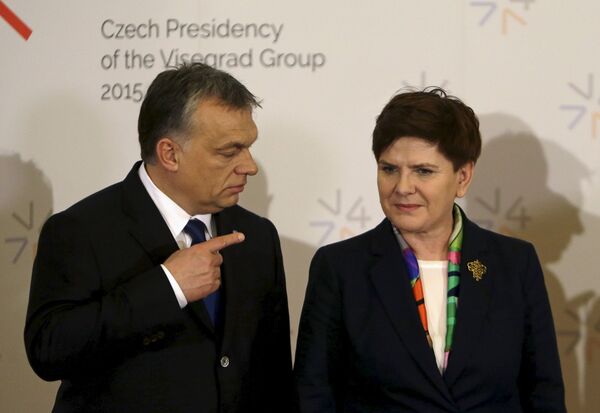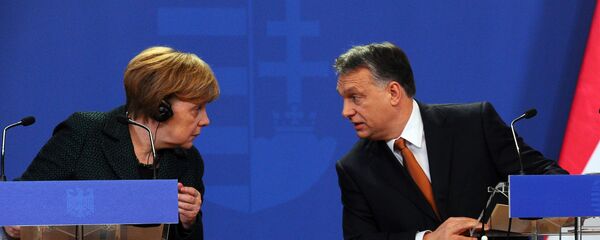Cameron has won general support for some of his demands — notably an opt-out from "ever closer union", cutting red tape and non-discrimination of non-Eurozone nations. However, his sticking point is on the matter of EU migrant workers in the UK receiving the same in-work benefits as UK taxpayers from the moment they enter the country.
The issue has caused deep resentment within Britain, with many believing it is wrong for EU citizens to arrive in Britain and enjoy the same benefits as people who have been paying taxes for years. Cameron is trying to negotiate an "emergency brake" that will allow the UK Government to withhold benefits payments to non-UK workers for up to four years.
However, the Visegrad Group — also known as the V4 — has made it clear they believe the benefit proposal is discriminatory. In a statement, they said:
"The Visegrad Group is prepared to support the United Kingdom's proposals aimed at strengthening competitiveness and increasing the role of national parliaments. However, V4 countries consider free movement one of the fundamental values of the European Union and will support no proposal that would be discriminatory or restrictive with regard to this freedom."
Closing Down
Coming on the eve of the European Council meeting, the statement reflects deepening divisions within the EU. The V4 have this week also called for urgent action to close the Macedonian and Bulgarian borders with Greece to deal with the refugee crisis.
— V4 PRESIDENCY (@V4_PRES) February 15, 2016
#Visegrad25 cake for our 25 anniversary of #V4 — PMs PL/CZ/HU/SK in Prague pic.twitter.com/PbNjk3jk4X
— Poland in the EU (@PLPermRepEU) February 15, 2016
The plan would effectively strand Greece outside of the Schengen area. Any such move would put them at odds with German Chancellor Angela Merkel and European Commission President Jean-Claude Juncker, who are calling for Schengen to continue and for a pan-European solution to the crisis.
As such, the Visegrad — together with allies such as Macedonia and Bulgaria — are holding the EU to ransom over two major issues that threaten to split the whole EU project, in what sources in the European Parliament say is blowing up into a "perfect storm".

With the migrant crisis leading to many European states closing their borders and putting the whole Schengen zone into chaos, and a failure to agree Britain's membership demands, EU leaders are facing the worst crisis since the formation of the union in 1993, under the Maastricht Agreement, which in turn grew out of the European Coal and Steel Community (ECSC) and the European Economic Community (EEC), formed by the Inner Six countries in 1951 and 1958, respectively.



